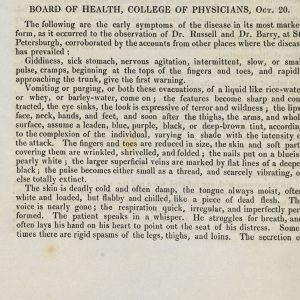
Description of the symptoms of cholera provided by the Government
A document issued by the Board of Health outlining the many symptoms of Cholera.
- Date created - 20 October 1831
- Author - Council Chamber, Whitehall
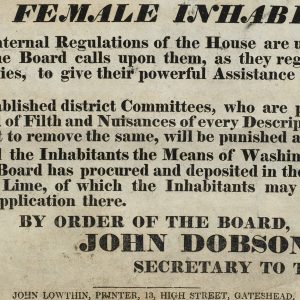
Poster created by Gateshead Board of Health addressed to women of the poorer housing
This poster, created by the Gateshead Board of Health, is addressed to 'women of poorer housing' living in Gateshead and orders that women clean and improve their houses to help stop the spread of cholera. Although no one knew the exact cause of Cholera, people at the time rightfully connected unclean living conditions with the spread of disease.
- Date created - 1831/2
- Author - Gateshead Board of Health
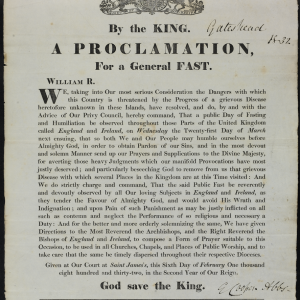
Poster from the King calling for a fast to implore God to stop the spread of cholera
This a copy of the proclamation (public announcement) issued by King William IV, in which he calls for all people in England and Ireland to take part in a fast. In the nineteenth century many people believed that disease was a punishment sent by God, and that if they repented (apologised) their sins by fasting, they would all be cured.
- Date created - 1832
- Author - Printers to King William IV
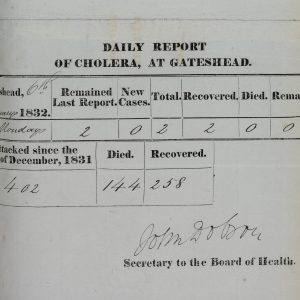
Report of the numbers of people who died from cholera in Gateshead on a particular day
This page is taken from a report detailing the number of deaths caused by Cholera in Gateshead. This page details the number of cholera cases and deaths on January 6 1832. It also shows how many people have died from Cholera in Gateshead since December 1831.
- Date created - 6 January 1832
- Author - Gateshead Board of Health
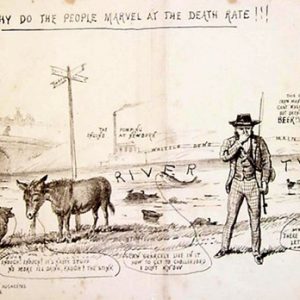
Satirical cartoon image of the reasons why the River Tyne was polluted in the 19th century
This cartoon image of the River Tyne shows the many reasons why the River Tyne was polluted in the 19th century and how this contributed to the spread of Cholera in Gateshead. During the nineteenth century the River Tyne, which flows through Newcastle and Gateshead, was a working river used by industries to dispose of waste, and often used by local people for drinking water and to wash their clothes.
- Date created - c.1900
- Author - Unknown